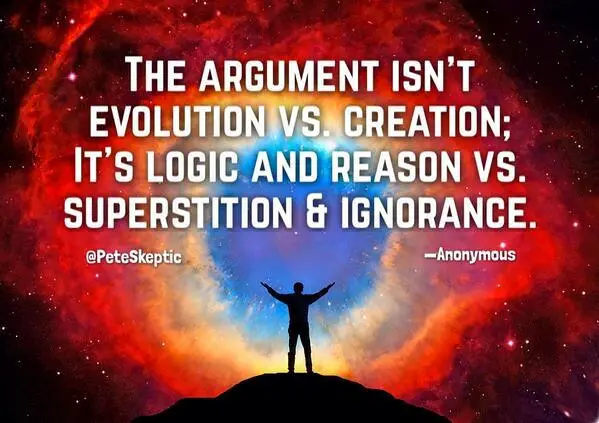Jonathan Dodd’s latest column. Guest opinion articles do not necessarily reflect the views of the publication. Ed
I’m interested in the recent story about Liam Neeson. I’ve always liked him as a screen presence, and for some reason I’ve always believed that he’s one of the good guys. Partly because he displayed great dignity when his wife, Natasha Richardson, died, and partly because she was a daughter of Vanessa Redgrave. And I liked him in Love, Actually, although his character there was somewhat iffy. For that I blame the script.
Liam has become embroiled in the current climate of nastiness, and I expect he had no real idea what he was getting into, and wishes fervently that he could escape it. I would like things to work differently, but I suppose we’re stuck with that, because social media makes it possible for anyone to type in anything that they want, and then get a lot of attention, followed up by a media frenzy. There are occasions when this becomes generally beneficial, at least for some, as in equal pay for women, or highlighting other inequalities that needed to have a light shone on them. But at the same time, the heart or a matter can be lost in the buzz of opinions.
Minimising or controlling education amongst their followers
Liam Neeson has been talking about his younger self, brought up in a certain environment, reacting badly to an apparent event that harmed someone dear to him. In the circumstances, many years ago, he experienced great anger, and went out looking for revenge, in the way that has been very common throughout history, by mobs and individuals who haven’t had the opportunity to think things through. This could be attributable to environment or upbringing or lack of education, or many other things.

Governments and religions have long known the importance to their continuing power, of minimising or controlling education amongst their followers. The crowds wanting to kill Asia Bibi are ignorant and believe the poisonous things that certain religious leaders tell them, and the government in Pakistan has to be very careful not to upset these same leaders, whose power resides in the ability to rouse large mobs to mass violence. Hitler understood this when he targeted the Jews. Far too often, when something is perceived to go wrong, the unthinking and backward thing to do is to look for someone to blame, and it’s always easy to find someone who looks or behaves differently and turn them into a target.
You’ll go looking for another minority
When you’ve destroyed a whole part of your country and sent hundreds of thousands of your own people into exile because they’re different, as they have in Myanmar, you’re going to feel better. You’re not necessarily going to think about whether you’ve done the right thing, or solved the problem, but your emotional state will have changed from angry and frustrated to relieved and calm because at least you’ve done something. And when the problems come back again because you never fixed them in the first place, you’ll go looking for another minority. And so on, and so on. Acting in this way is the denial of reason.

We constantly confuse real things with the way we feel about them. As children we have no lines between what we feel and what’s real. Every parent remembers temper tantrums, and the way our children feel everything so immediately and so totally that’s sometimes shocking. We also know that part of our job as parents is to help our children to regulate this, and we do it either through reason and calmness and discussion, or by making them shut up one way or another. I know which way I prefer. This isn’t something that’s either learned or not, there are all sorts of shading involved.
Arguing about entirely different things
I remember as a child getting into arguments and almost fights about whether Corgi Toys were better that Dinky Toys. A lot of shouting went on in classroom and playground. I realised that everyone’s opinions were based on which cars they possessed, and their loyalty was to those rather than a consideration of which type was actually better. We were really arguing about entirely different things, but we were clumping it all under the banner of ‘Which kind or toy cars are better’. It was a non-argument, because Corgi Toys were better because they didn’t have tin baseplates and you could steer them, but Dinky Toys were better because they were tougher, had more opening doors, and a larger range.

I don’t know why I started thinking about that, but I realised that there was no need to argue about it, and then I learned another lesson when I expressed the view that neither was really better. Both sides united against me, because by then they were dug into a sort of trench warfare based on their emotional attachments. They knew who was like them and who wasn’t, and they didn’t like me telling them that it was all ridiculous. All of us grew up and became adults, and I’m sure most forgot all about that, or thought the same thing in their own time. I’m also sure that several of them never thought about it, and carried on throughout their lives choosing sides in the same way, based on their feelings and the feelings of those who were close to them.
The need for enemies
I know. I’m not like that. I’ve never been a joiner or a belonger, and my mind seems to run along different lines. But I can’t help looking at things in different ways, and that’s what feeds this column, among other things. I’ve never understood football fannery. I don’t think it’s a bad thing, and I don’t criticise people who support one team or other, but I can’t understand why sometimes they suffer such emotional highs and lows, depending on points or referee decisions, or get into trouble or fights over one team or another, rather like the Corgi/Dinky controversy. I also can’t understand people who get hot and flustered about the country, or the monarchy, and I certainly don’t understand people who shout at me when I ask them about their beliefs in a calm and reasonable way.

To some people, it seems to me, any sort of question can be interpreted as some sort of attack. I don’t understand how anyone gets to that point. It always leads to the idea of loyalty being more important than reason, and allows anyone who can command loyalty to lead large groups of followers into doing great damage. It also encourages the need for enemies. I never understood why anyone would go down that road. My question is this. Are people born to be followers and in the thrall of their emotions to the point where they give up their intelligence and reason to a cause or a belief, almost at random? Or have they not been taught or persuaded that the use of reason is a better way to make up your mind?
Being led by our emotions
So when I heard Liam Neeson talking about himself as a youth, brought up in Northern Ireland during the Troubles, I wasn’t surprised that he had acted in the way he so truthfully described at that time. I was surprised that he spoke about it so openly, and then I understood that he was trying to tell everyone that he has changed, because he started learning at that time that there was another way to behave and react to hard news. I admire him for that, and I believe he’s a shining example of how we should behave, and how we can turn ourselves round to become more civilised and far more effective and powerful people once we start thinking about things instead of being led by our emotions.

I actually think Liam should be applauded, rather than pilloried for talking about how he was in his youth and how he has struggled to become a better person. I can think of lots of things I am ashamed of that I did whilst I was learning to become a proper human being, and I can think of lots of things I’m still struggling with. It’s not a switch you click once, it’s a process you keep working on all your life, and there’s no end to that process. It’s also highly-gratifying work
Reason always tops emotion
For some people, it’s absolutely required for the job. We can’t imagine a nurse or doctor who refuses to treat someone, even when their patient is being abusive and violent, even to those who are trying to help them. There are many more examples of this selfless dedication, and we all admire that ability they have to behave professionally, no matter what their feelings are telling them to do. I don’t think social media has been very good for us in this way, because anyone can have any opinion about anything, and they can express it on social media, and there’ll always be someone who agrees. That doesn’t validate it, and we need to remember that before we react ourselves. In the same way a clear message, based on reason and facts, can be rubbished. That doesn’t invalidate it.
We don’t have an answer to this yet, as a race and as a civilisation. But we are losing our grip, as in the recent descent into primitive behaviour over Brexit. We need to be very careful not to allow things to slide further, before the understanding that reason always tops emotion disappears, and we end up with disorder and hatred. Look at History. This has happened before. Depressingly often. I don’t want to live through that. Please.
And there’s no reason why anyone shouldn’t live by reason and also support a football team.
If you have been, thank you for reading this.
Image: Glyn Lowe PhotoWorks under CC BY 2.0
Image: Winluxhuman under CC BY 2.0
Image: Zlatica Hoke (VOA) under CC BY 2.0
Image: Retromobile under CC BY 2.0
Image: pxhere under CC BY 2.0
Image: peteskeptic under CC BY 2.0





